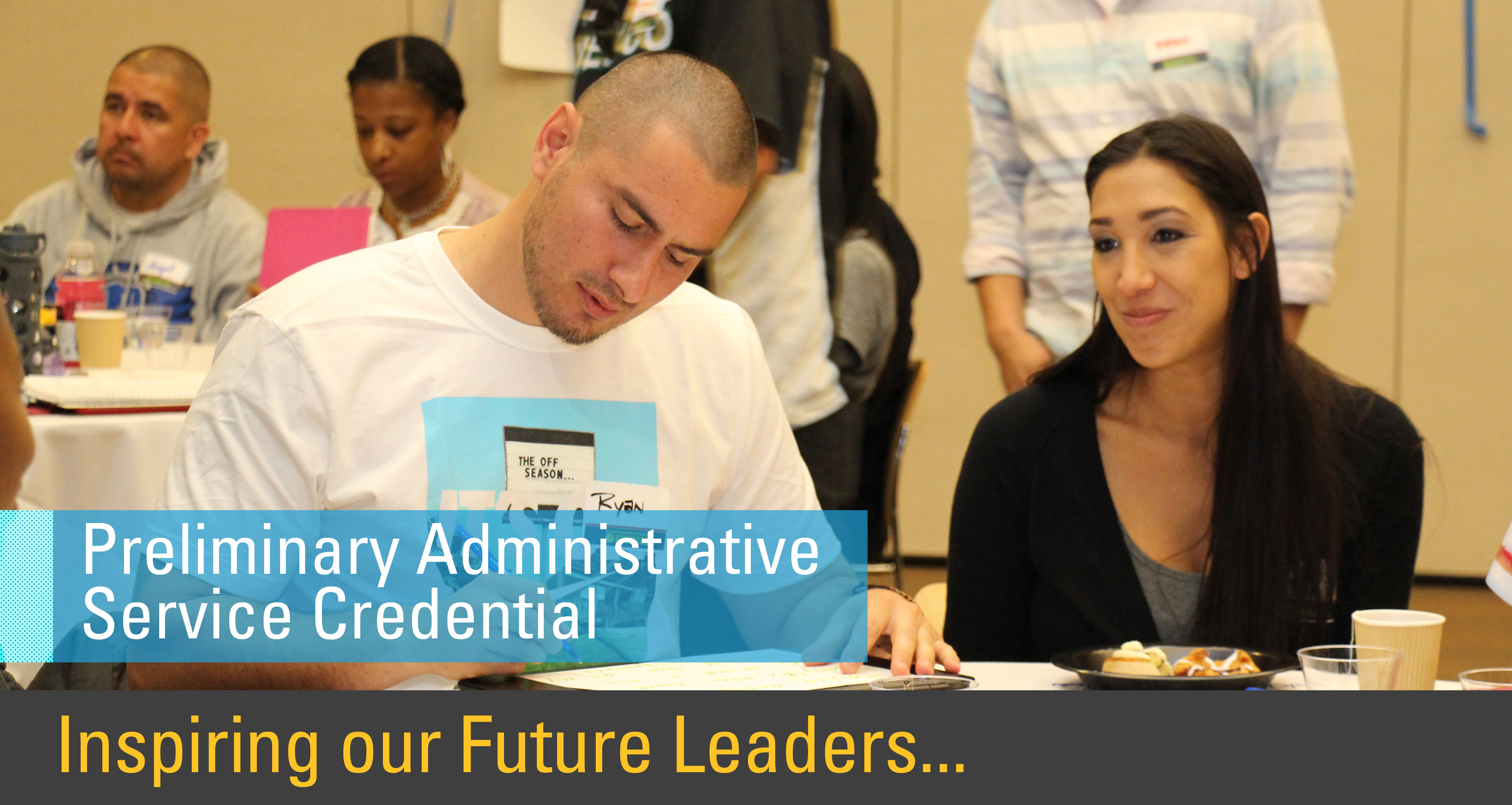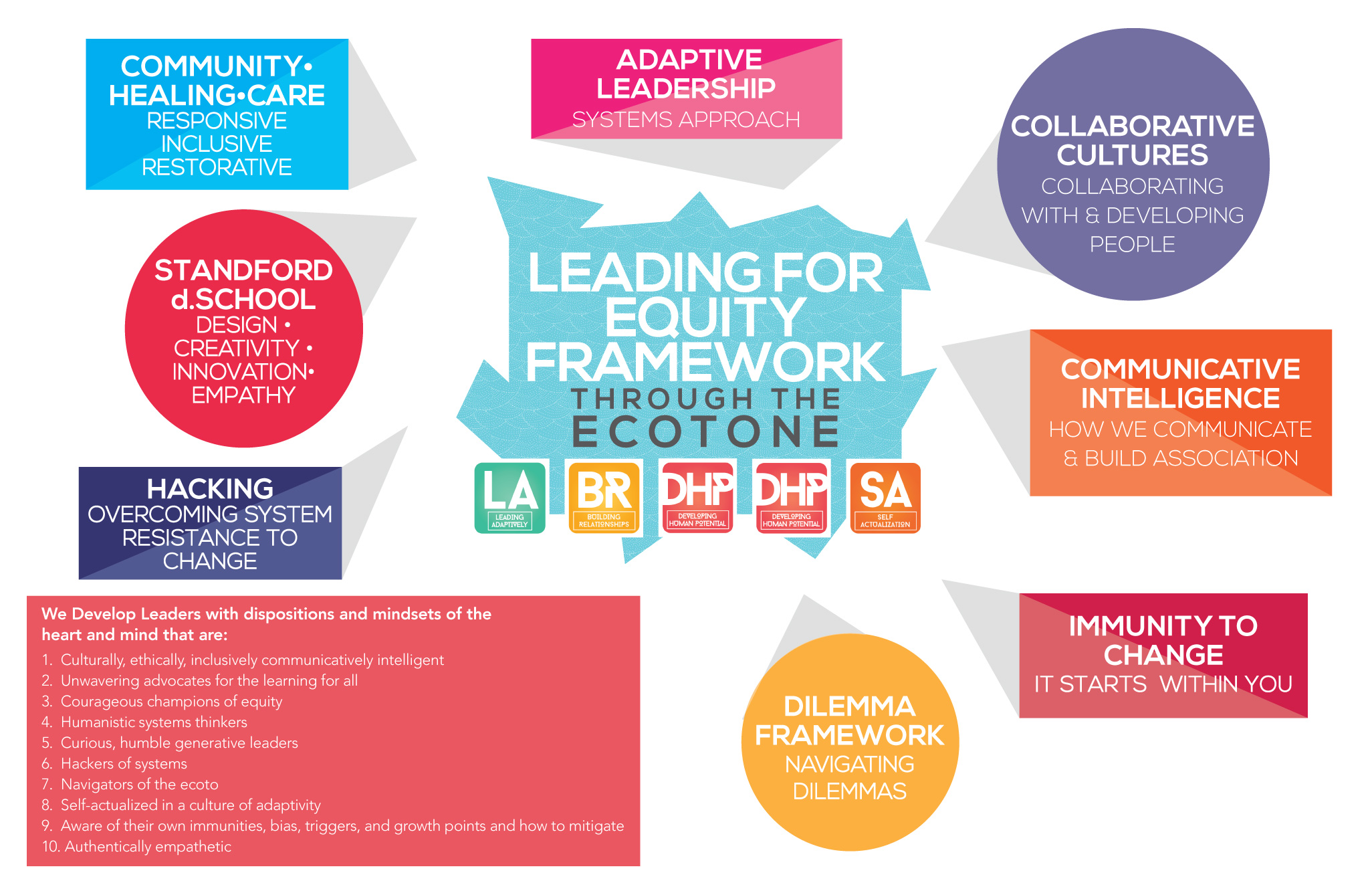Preliminary Administrative Services Credential
Latest News
Informational Session of our Programs
Info Session Powerpoint Download
(password: SLPINFO)
Program Overview:The CSUDH new Preliminary Administrative Services Credential program has been approved by the CCTC. CSUDH offers an Internship Program for candidates who must earn their Preliminary Administrative Service Credential while serving in an administrative capacity. The Preliminary Administrative Services Credential program meets the Standards of Quality and Effectiveness for Preliminary Administrative Services Credential Programs as required by the CCTC. This program prepares you to excel in performing responsibilities of entry-level school administrative positions. The program content includes both knowledge and practice components designed to meet the needs of urban schools both today and in the future. Our program emphasizes preparation of administrators to be instructional leaders. Upon completing the program, candidates will receive CSUDH’s recommendation and will submit an application and fee to the CCTC for a Certificate of Eligibility for the Preliminary Administrative Services Credential. This certificate authorizes the candidate to seek initial employment as an administrator, but does not authorize on-going administrative service. Once employed in an administrative position, the candidate is eligible for the Preliminary Administrative Services Credential (Tier I). When an administrative position is obtained, an application must be filed with the CCTC, and the Preliminary Administrative Services Credential (Tier I) authorizing service as an administrator will be issued.
Image illustrates the student choice in an online or hybrid format for learning in |
Program DesignInnovative. Flexible. Expedient.The CSUDH program is designed to deliver course material through three interrelated formats--face-to-face, fieldwork, and technology, each utilizing multi-media technologies.
Components infographic above
50% Traditional ClassesThe six core classes are structured in 5-week modules with each course meeting formally one evening a week for 5.5 hour sessions (4:15 p.m. to 9:45 p.m.). Additional traditional classroom sessions may be required based on the instructor’s needs and determination. Approximately two Saturdays a semester are required for the fieldwork and assessment seminars. 25% Online, Distance Learning:Web-based discussion, self-reflection based on extensive professional reading, and research activities have been designed to support the face-to-face and fieldwork components of the program. SLP students are expected to be competent in technology skills due to the program’s high-level technology components. Essential skills include basic word processing programs, spreadsheet programs, presentation programs, and on-line chat rooms and discussion boards. 25% Fieldwork:This component of the program involves candidates in a leadership project, the field-based project, that integrates with both the traditional classroom and on-line components of the program. The field-based project culminating activity is a multi-mediated presentation presented at the end of the program.
|
Required Courses (26 units):
FALL SEMESTER (13 Units) SLP 551 Visionary Leadership (3 units) SLP 552 Instructional Leadership: Teaching and Learning (3 units) SLP 556 Political, Social, Economic, Legal and Cultural Leadership (3 units) SLP 550 Preliminary Leadership (2 units) SLP 560 Fieldwork (2 units) SPRING SEMESTER (13 Units) SLP 553 Organizational Leadership and Resource Management (3) SLP 554 Collaborative and Responsive Leadership for All Students (3) SLP 555 Ethical Leadership (3) SLP 557 Assessment, Preliminary Leadership (2) SLP 561 Fieldwork (2 units)
|
Program Learning Outcomes
PLO1: Understand school governance and the roles and relationships of stakeholders to develop and apply a collective vision that uses multiple measures of data and focuses on equitable access, opportunities, and outcomes for all students, guides planning, decision-making, and the change processes required to continuously improve teaching and learning. PLO2: Understand the role of the instructional leader and use the state-adopted standards, frameworks, and teacher performance expectations, as well as apply research-based principles of adult learning theory to understand how teachers develop across the phases of their careers, guide, support, provide teachers feedback, and monitor teaching and learning. PLO3: Understand the leader’s role in establishing a positive, productive school climate, developing a budget and the staff, and be critical of how established structures, policies and practices are supportive of staff, students and families and lead to all students graduating ready for college and career. PLO4: Recognize the range of family and community perspectives and engage families in education and school activities as well as use facilitation skills to assist individuals and groups in reaching consensus on key issues (student learning, safety, and well-being) and understand the benefits of and regulations pertaining to their involvement. PLO5: Develop and know how to use professional influence with staff, students, and community to develop a climate of trust, mutual respect, ethical and professional conduct, and honest communication necessary to consistently make fair and equitable decisions on behalf of all students as well as regularly review and reflect on their performance and consider how their actions affect the entire school community. PLO6: Using the Critical Race Theory framework, understand the important role education policy plays in shaping the learning experiences of students, staff, families, and the larger school community as well as a leaders’ influence in political, social, economic, legal and cultural contexts affecting education to improve education policies and practices. PLO7: Engage in participatory action research to mitigate an inequity at their school and demonstrate professional school leadership behaviors (CPSELS) by working with a community of practice using adult learning theory in order to make meaningful leadership contributions to their schools, and express findings as well as advanced ideas/research about school leadership orally via a presentation to sitting administrators. PLO8: Demonstrate ability to develop knowledge of educational leadership theory, behaviors, dispositions and grow their own leadership dispositions and behaviors through regular identification, feedback and reflection to gain self-awareness and self-actualization.:
|
Cost:For up-to-date costs, please see the University Catalog. Time:Credential students take 13 units in fall and again in the spring to complete their credential requirements. Six units can then be taken while in the credential program, in the following summer or subsequent fall to complete the master degree requirements. |



